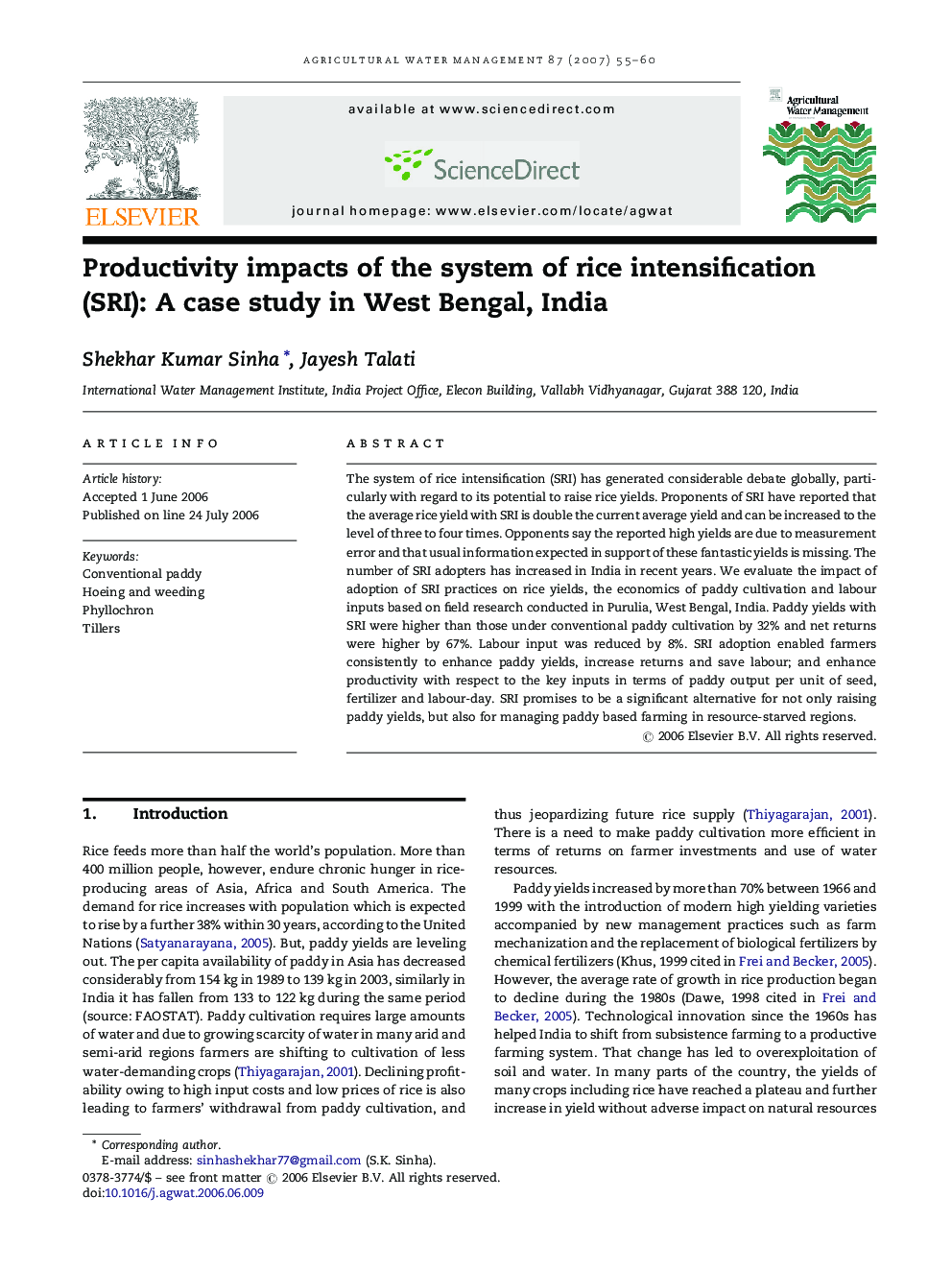| Article ID | Journal | Published Year | Pages | File Type |
|---|---|---|---|---|
| 4480571 | Agricultural Water Management | 2007 | 6 Pages |
The system of rice intensification (SRI) has generated considerable debate globally, particularly with regard to its potential to raise rice yields. Proponents of SRI have reported that the average rice yield with SRI is double the current average yield and can be increased to the level of three to four times. Opponents say the reported high yields are due to measurement error and that usual information expected in support of these fantastic yields is missing. The number of SRI adopters has increased in India in recent years. We evaluate the impact of adoption of SRI practices on rice yields, the economics of paddy cultivation and labour inputs based on field research conducted in Purulia, West Bengal, India. Paddy yields with SRI were higher than those under conventional paddy cultivation by 32% and net returns were higher by 67%. Labour input was reduced by 8%. SRI adoption enabled farmers consistently to enhance paddy yields, increase returns and save labour; and enhance productivity with respect to the key inputs in terms of paddy output per unit of seed, fertilizer and labour-day. SRI promises to be a significant alternative for not only raising paddy yields, but also for managing paddy based farming in resource-starved regions.
